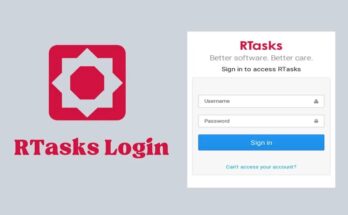Introduction:
In the rapidly evolving landscape of data management and analytics, the role of robust and efficient data integration tools cannot be overstated. One such tool that has gained prominence in recent years is Informatica. In this article, we will delve into the intricacies of Informatica, exploring its features, functionalities, and the crucial role it plays in modern data-driven enterprises.
What is Informatica?
At its core, Informatica is a powerful and versatile data integration platform designed to facilitate the seamless flow of data between various systems, applications, and databases. The primary goal of Informatica is to ensure that organizations can access, discover, and integrate data from disparate sources in a unified and coherent manner.
Key Components of Informatica:
♦ PowerCenter:
Informatica PowerCenter is the flagship product that forms the backbone of the Informatica platform. It provides a comprehensive set of tools for extracting, transforming, and loading (ETL) data. PowerCenter enables organizations to move and transform data from source to target systems efficiently.
♦ PowerExchange:
This component of Informatica is designed to connect with a wide range of data sources. PowerExchange facilitates real-time data integration by supporting various data formats and protocols. It acts as a bridge between PowerCenter and different source systems, ensuring seamless data extraction.
♦ Informatica Cloud:
With the growing prevalence of cloud computing, Informatica has adapted by offering a cloud-based solution. Informatica Cloud provides the flexibility to deploy and manage data integration processes in the cloud, catering to the needs of organizations with a cloud-first approach.
♦ Master Data Management (MDM):
Informatica’s MDM solution is geared towards ensuring data consistency and accuracy across an organization. It helps in creating a centralized, master repository of critical business data, thereby reducing data errors and improving overall data quality.
Informatica’s Master Data Management (MDM) solution is designed to foster data consistency and precision throughout an organization. It facilitates the establishment of a centralized master repository housing essential business data. This approach effectively minimizes data errors and enhances the overall quality of the data maintained by the organization.
♦ Data Quality:
Data quality is paramount in any data-driven initiative. Informatica Data Quality (IDQ) is a tool that allows organizations to profile, cleanse, and monitor the quality of their data. It ensures that data used for analysis and decision-making is accurate and reliable.
Significance in the Data Landscape:
Informatica has become a cornerstone in the data management strategies of many enterprises, and for good reason. Here are some key reasons why Informatica holds such significance:
♦ Scalability:
Informatica’s scalability allows organizations to handle increasing volumes of data as their business grows. Whether it’s processing large datasets or managing real-time data integration, Informatica is designed to scale to meet the demands of the modern data landscape.
♦ Ease of Use:
Despite its robust capabilities, Informatica is known for its user-friendly interface. This makes it accessible to both technical and non-technical users, enabling organizations to empower a wide range of stakeholders in their data integration and analytics efforts.
♦ Versatility:
Informatica’s ability to connect with various data sources, including on-premises databases, cloud applications, and big data platforms, makes it a versatile solution for organizations with diverse data ecosystems.
♦ Time and Cost Efficiency:
By automating data integration processes and providing a unified platform for managing data, Informatica contributes to significant time and cost savings. Organizations can streamline their data workflows and focus on deriving insights rather than wrestling with data integration challenges.
Conclusion:
In conclusion, Informatica stands as a robust and versatile solution in the realm of data integration and management. Its suite of tools empowers organizations to navigate the complexities of modern data ecosystems, ensuring that data is not just a challenge but a valuable asset.
Also Read: How to Fix Phone Not Recognizing SD Card
As enterprises continue to embrace the era of data-driven decision-making, the role of tools like Informatica becomes increasingly pivotal in shaping a successful data strategy.




